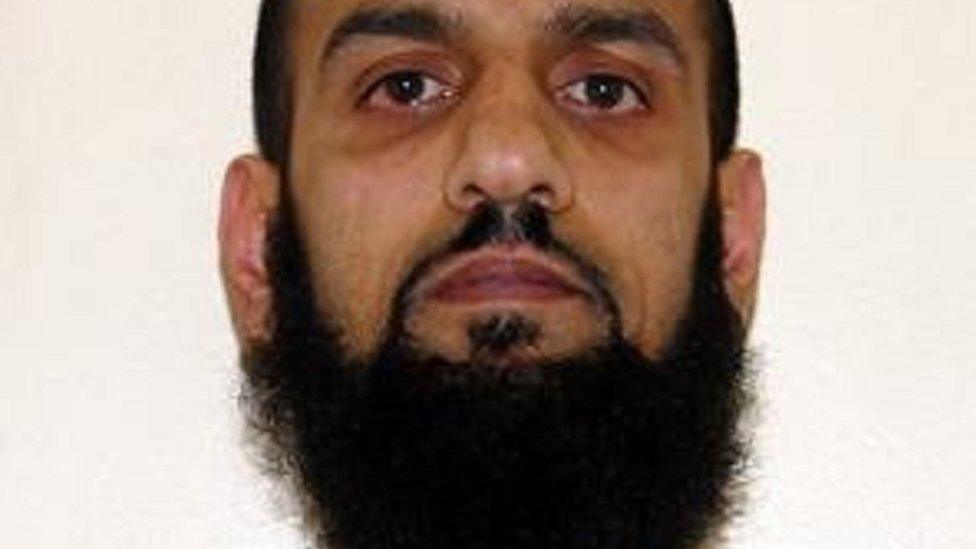Birmingham terrorist who plotted soldier beheading denied parole
- Published

Parviz Khan was jailed for a minimum of 14 years in 2008
A terrorist who plotted to kidnap and behead a British Muslim soldier is to remain in prison after the Parole Board decided he should not be released.
Parviz Khan, from Birmingham, was handed a life sentence, with a minimum of 14 years, external at Leicester Crown Court in February 2008 after pleading guilty, external to the plan.
The board said it was "not satisfied" Khan was suitable for release.
His case will next be considered again in about two years' time.
Khan's trial heard he was claiming benefits of over £20,000 a year while claiming to be a full-time carer for his elderly mother during the time he plotted to kidnap a serviceman and decapitate him "like a pig".
Four other men were sentenced alongside , externalKhan, but the trial heard he was the prime mover in the Birmingham-based cell.
He also admitted intending to supply equipment to terrorists on the Pakistan-Afghanistan border.
'Anger management problems'
A document detailing the Parole Board's decision said the risk factors at the time of his offending included his "acceptance of extremist ideology".
It added he had "problems with his self-identity and had needed the excitement and status which involvement in terrorist conspiracies had provided. This raised concerns about his ways of thinking and the decisions he made".
A subsequent conviction for violence in prison "suggested possible anger management problems and difficulties in dealing with extremes of emotion".
While his behaviour in prison had been "mostly positive" and he had taken part in "highly specialised interventions with regard to ideological, identity and terrorism concerns", officials did not consider he was ready for release.
It added Khan himself recognised he was not ready for release on parole licence.
Now in his early 50s, it was his first time in front of the board after becoming eligible for parole in February 2021.

Follow BBC West Midlands on Facebook, external, Twitter, external and Instagram, external. Send your story ideas to: newsonline.westmidlands@bbc.co.uk, external